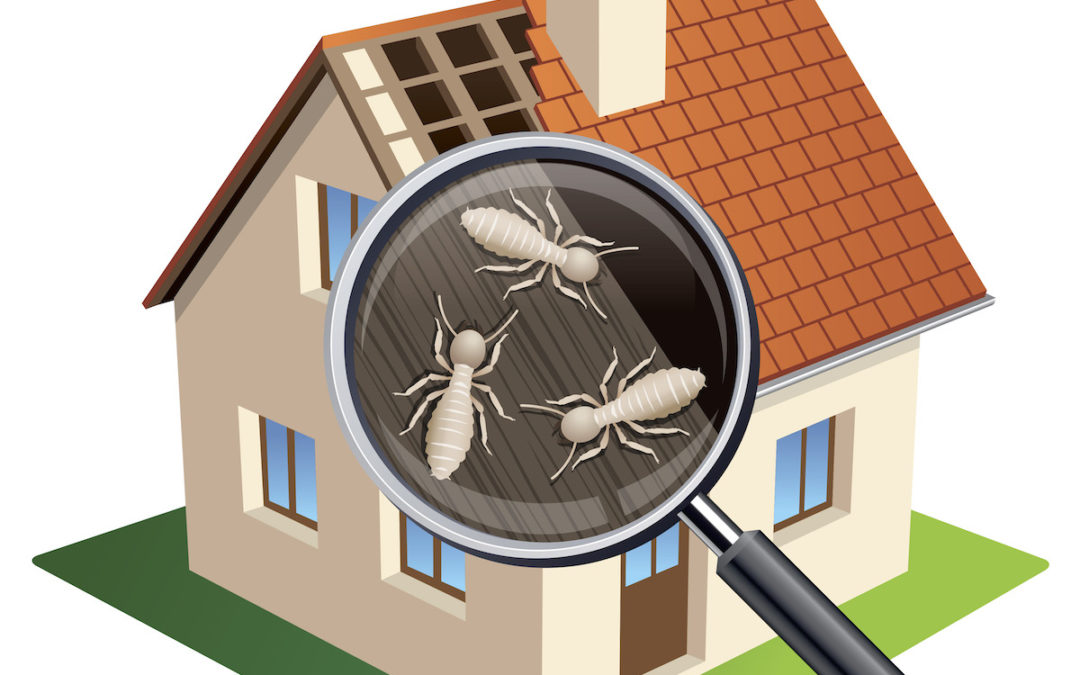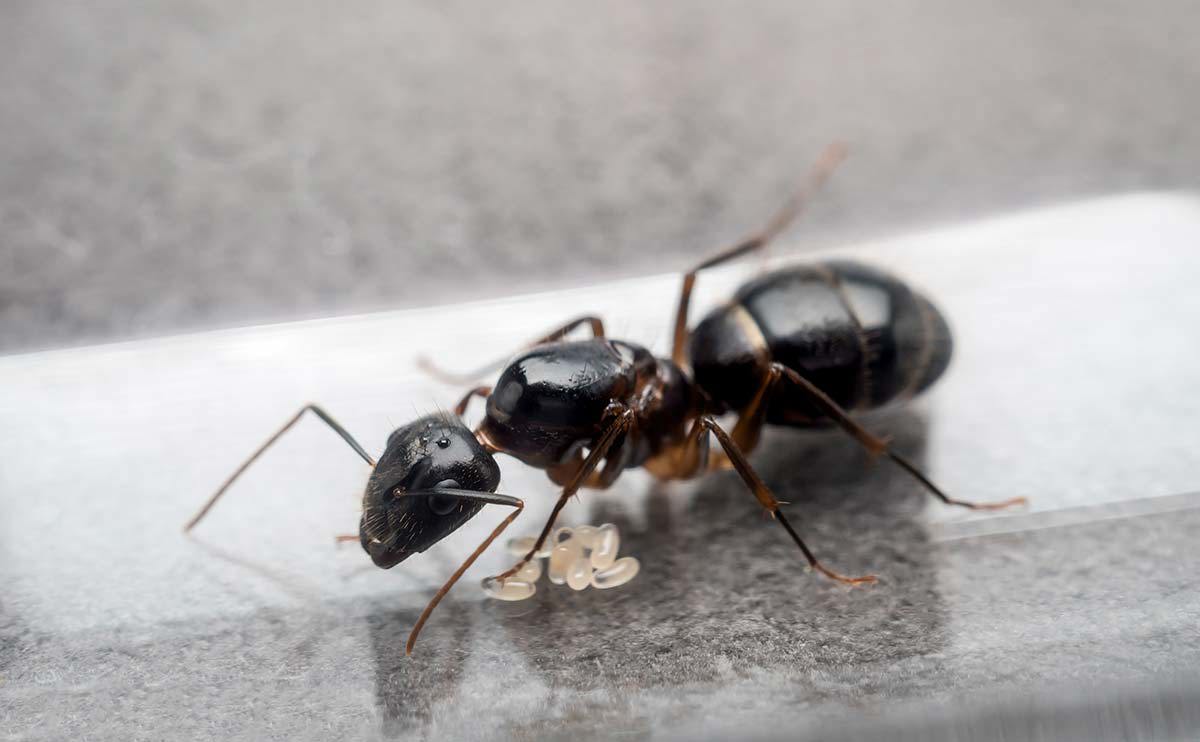Complete Ant Control: Strategies and Services to Beat Ant Troubles
Complete Ant Control: Strategies and Services to Beat Ant Troubles
Blog Article
Ecological Effect of Bug Control: Balancing Efficiency With Sustainability
The ecological influence of parasite control is a vital issue that needs a delicate balance between attaining performance in making certain and managing pests sustainability of our communities. As we make every effort to shield our plants, homes, and health from the dangers posed by pests, the techniques we employ can accidentally damage the environment. From using damaging chemicals that seep right into our soil and water to the unplanned effects on non-target types, the effects of standard bug control techniques are far-reaching. Nonetheless, there are emerging approaches that offer expect an extra sustainable strategy to pest monitoring. These services not just objective to address the immediate pest issues but also think about the long-lasting health and wellness of our earth.
Dangerous Chemicals in Bug Control
The use of hazardous chemicals in parasite control poses significant environmental and wellness dangers that necessitate careful consideration and reduction methods. Herbicides, pesticides, and insecticides are frequently utilized to eradicate bugs, but their widespread application can bring about unplanned repercussions. These chemicals can pollute soil, water resources, and the air, influencing not just the targeted parasites yet additionally helpful bugs, wildlife, and humans.

To resolve these risks, integrated pest administration (IPM) methods are being advertised as a much more lasting choice. IPM includes a combination of methods such as biological control, habitat adjustment, and the targeted usage of pesticides as a last resort (ant control cherryville nc). By adopting a holistic strategy to pest control, we can lessen the ecological and health and wellness impacts connected with damaging chemicals while efficiently managing pest populations
Impact on Non-Target Species
Thinking about the unexpected consequences of pest control methods, the influence on non-target types is a critical facet that calls for thorough examination. While parasite control actions aim to target details pests, other microorganisms in the ecosystem might be accidentally influenced. Non-target varieties, consisting of beneficial insects, birds, animals, and also plants, can experience direct or indirect damage from pesticide applications or biological control techniques.
Pesticides made to fight a particular insect pest may damage pollinators like or all-natural killers such as ladybugs. Biological control agents, if not species-specific, can position threats to unplanned targets, disrupting the environmental balance.
To alleviate the effect on non-target species, integrated bug administration (IPM) techniques that stress a holistic method to pest control are advised. These techniques focus on the use of environmentally friendly techniques, decreasing damage to useful organisms while effectively managing pest populaces. Conducting thorough danger analyses and keeping track of the results of bug control efforts are important action in guarding non-target types and promoting overall community health.
Soil and Water Contamination
Unintended environmental consequences of insect control techniques expand beyond impacting non-target species, with significant effects for dirt and water contamination. Chemicals, herbicides, and chemical plant foods used in insect control can seep into the soil and contaminate groundwater, positioning a danger to both marine and terrestrial environments. Soil contamination can interfere with the equilibrium of microorganisms necessary for nutrient biking and plant growth, bring about lowered soil fertility and efficiency. In addition, these chemicals can continue in the atmosphere for extensive periods, collecting in the soil and potentially entering the food chain.
Water contamination is one more crucial issue related to pest control methods. Overflow from farming fields treated with chemicals can lug these chemicals into neighboring water bodies, influencing water microorganisms and water quality. Contaminants in water resources can have far-ranging effects, impacting not just marine life but likewise human wellness via the consumption of infected water or aquatic organisms. To mitigate soil and water contamination from insect control tasks, integrated bug administration methods that focus on sustainability and minimize chemical inputs are vital.
Air Contamination From Pesticide Use
Exposure to air-borne chemicals during agricultural applications poses a substantial issue for air pollution control measures. They can volatilize right into the air and type volatile natural compounds (VOCs) and other airborne toxins when pesticides are sprayed onto crops - ant control services. These chemicals can contribute to the development of ground-level ozone, a major component of smog that can have detrimental effects on human health, crop productivity, and general air top quality. In addition, chemical drift, where chemicals are lugged by the wind to unexpected areas, can cause the contamination of neighboring ecosystems and water bodies.

Techniques for Sustainable Bug Control
In the world of agricultural practices, applying lasting parasite control approaches is vital for maintaining environmental equilibrium and securing crop yields. Sustainable insect control highlights making use of eco-friendly approaches to handle bug populaces successfully while lessening damage to non-target microorganisms and communities. Integrated Bug Monitoring (IPM) is an extensively adopted technique that integrates organic, cultural, physical, and chemical control methods to accomplish long-term insect administration solutions.
One trick technique in sustainable pest control is promoting biodiversity within agroecosystems. By boosting all-natural enemies of bugs, such as killers and parasitoids, farmers can reduce the need for artificial chemicals. Crop turning and diversity are likewise efficient strategies to interrupt pest life cycles and create much less beneficial conditions for parasites to prosper. Furthermore, using pest-resistant plant ranges and using methods like trap chopping can help in reducing bug pressure without counting heavily on chemical treatments. Ultimately, by incorporating these sustainable insect control approaches, farmers can attain an equilibrium in between pest management performance and environmental stewardship.
Conclusion
To conclude, the environmental effect of bug control methods have to be thoroughly taken into consideration to balance effectiveness with sustainability. Harmful chemicals made use of in insect control can bring about soil and water contamination, air pollution, and harm non-target varieties - termite control services. It is vital to carry out lasting pest control strategies to lessen these negative impacts on the environment and promote a healthier environment for future generations
By adopting a holistic technique to pest control, we can minimize the ecological and health influences associated with damaging chemicals while properly managing pest populaces.

To mitigate the air pollution created by chemical use, it is important to embrace integrated insect monitoring approaches that prioritize the usage of non-chemical bug control approaches, such as plant turning, all-natural killers, and immune crop ranges. Lasting pest control stresses the usage of ecologically friendly methods to manage bug populaces efficiently while reducing click resources damage to non-target organisms and environments. Integrated Parasite Administration (IPM) is a commonly taken on approach that integrates organic, social, physical, and chemical control approaches to achieve long-term pest administration remedies.
Report this page